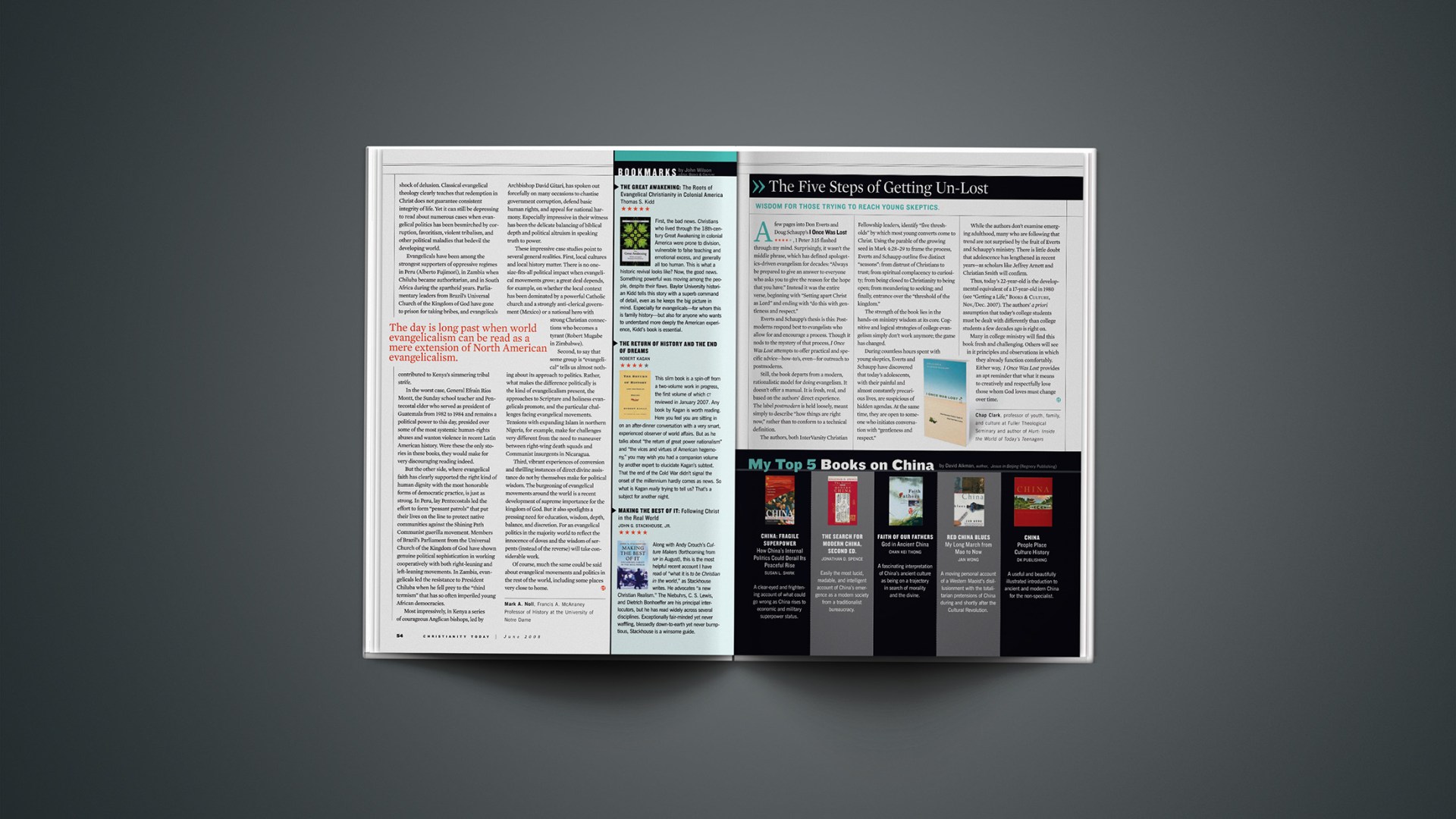A few pages into Don Everts and Doug Schaupp’s I Once Was Lost, 1 Peter 3:15 flashed through my mind. Surprisingly, it wasn’t the middle phrase, which has defined apologetics-driven evangelism for decades: “Always be prepared to give an answer to everyone who asks you to give the reason for the hope that you have.” Instead it was the entire verse, beginning with “Setting apart Christ as Lord” and ending with “do this with gentleness and respect.”
Everts and Schaupp’s thesis is this: Postmoderns respond best to evangelists who allow for and encourage a process. Though it nods to the mystery of that process, I Once Was Lost attempts to offer practical and specific advice—how-to’s, even—for outreach to postmoderns.
Still, the book departs from a modern, rationalistic model for doing evangelism. It doesn’t offer a manual. It is fresh, real, and based on the authors’ direct experience. The label postmodern is held loosely, meant simply to describe “how things are right now,” rather than to conform to a technical definition.
The authors, both InterVarsity Christian Fellowship leaders, identify “five thresholds” by which most young converts come to Christ. Using the parable of the growing seed in Mark 4:28–29 to frame the process, Everts and Schaupp outline five distinct “seasons”: from distrust of Christians to trust; from spiritual complacency to curiosity; from being closed to Christianity to being open; from meandering to seeking; and finally, entrance over the “threshold of the kingdom.”
The strength of the book lies in the hands-on ministry wisdom at its core. Cognitive and logical strategies of college evangelism simply don’t work anymore; the game has changed.
During countless hours spent with young skeptics, Everts and Schaupp have discovered that today’s adolescents, with their painful and almost constantly precarious lives, are suspicious of hidden agendas. At the same time, they are open to someone who initiates conversation with “gentleness and respect.”
While the authors don’t examine emerging adulthood, many who are following that trend are not surprised by the fruit of Everts and Schaupp’s ministry. There is little doubt that adolescence has lengthened in recent years—as scholars like Jeffrey Arnett and Christian Smith will confirm.
Thus, today’s 22-year-old is the developmental equivalent of a 17-year-old in 1980 (see “Getting a Life,” Books & Culture, Nov./Dec. 2007). The authors’ a priori assumption that today’s college students must be dealt with differently than college students a few decades ago is right on.
Many in college ministry will find this book fresh and challenging. Others will see in it principles and observations in which they already function comfortably. Either way, I Once Was Lost provides an apt reminder that what it means to creatively and respectfully love those whom God loves must change over time.
Chap Clark, professor of youth, family, and culture at Fuller Theological Seminary and author of Hurt: Inside the World of Today’s Teenagers
Copyright © 2008 Christianity Today. Click for reprint information.
Related Elsewhere:
I Once Was Lost is available from ChristianBook.com and other retailers.
More book reviews are in our books section.










